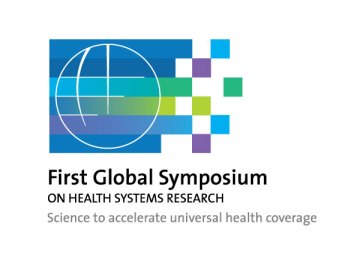The story was tragic. A Tuberculosis patient from India who died because the system which was expected to provide for his treatment failed to deliver… and then the dessert arrived.

The setting? The official dinner of the First Global Symposium on Health Systems Research organized at the Montreux Casino. A photo of the dying TB patient formed the background for 20 minutes of a talk on “Why Health Systems Fail” by Atul Gawande, a surgeon and writer, to an audience obviously more interested in the wining and dining and, of course, the party that followed.
November 16 to 19 of 2010 saw the global public health giants gather in Montreux, Switzerland, for the First Global Symposium on Health Systems Research under the auspices of the World Health Organization and partners. Some of us Emerging Voices from the Global South (52 of us from 29 countries) got a unique chance to be a part of this experience by getting selected through an essay competition organized by the Institute of Tropical Medicine, Antwerp.
However, for us it was a stark lesson in the “dichotomy” in practice. On the one hand, we hear all the time about “gross injustices in the way globalization takes place” and 20-40 percent inefficiencies and waste; on the other hand, we clearly have “wasteful spending” and a “culture of entitlements” to these perks and privileges among international health technocrats themselves. We talk about the need to send the right message and then hold such global events far away from the settings being discussed, with fee structures that exclude many of the very people affected. How can well-meaning people in global health maintain that we need to organize structural solidarity and transfers for health via multilateral mechanisms, when many of these organizations waste resources at the same time?
What Message Are We Sending?
We are by no means shifting blame. A portion of it rests squarely and surely on our shoulders as well, for we were very much a part of this particular event. However, one has to agree that there is something odd in talking about “reaching the marginalized” and “those who cannot afford health care” at an “official” symposium dinner in a casino. After all, an official event organized by WHO and partners sends a strong message. What message did this particular event convey? Is it an echo of this timeless verse from ‘The Development Set’ penned by Ross Coggins?
We discuss malnutrition over steaks
And plan hunger talks during coffee breaks.
Whether Asian floods or African drought,
We face each issue with open mouth.
Perhaps, we should revisit the purposes of a conference: sharing knowledge, networking and building collaborations. Of course the setting, dinners and gala events are all important to achieve these goals, but at what costs? Lot of networking at venues like these happens for reasons of fundraising. Sometimes, fundraising for research and pet projects becomes more important than the proclaimed overall goal: “Universal Coverage.” From that point of view, the casino event was certainly very appropriate, more along the lines of “meet the President” fund-raising dinners in the United States.
This also brought into stark contrast the World Health Report 2010, which for the first time stressed that, for decades to come, many low-income countries from Sub-Saharan Africa will need external financing support to help them on the path towards universal coverage (as they can’t do it themselves). We are essentially talking about 150 million victims of catastrophic health expenditure. Do we have the right to dishonor them or our cause by acting so callously?
As far as the WHO is concerned, we have to admit that this event was probably a bit atypical, but this double culture we are referring to seems all too obvious in many international organizations. “The Lords of Poverty,” whether multilateral or bilateral, transfer very large sums of money, which should ideally make them more accountable to the public and transparent in their dealings. Unfortunately, that is not the case. The allocation of official aid follows a set agenda and its rationale has been likened to the need for champagne: “In success you deserve it, in failure you need it.”
Are Cutbacks Only For Common People?
Incidentally, a similar paradox exists with respect to the climate challenge: there are still far too many “happy fliers” among the global health big shots, in spite of the fact that climate change could turn out to be the biggest global health threat of the 21st century. Cost cutting and limiting carbon footprints have become international buzz words, but in practice the responsibility seems to rest solely on the shoulders of common people.
Maybe, it is time to stop being such hypocrites. No matter the reality, many look up to the WHO as the face of global health and the institution that should play a key role in global health governance. Lead by example, even in the face of current adversities. That is the least we expect.
The article is written along with Meena Daivadanam, Kristof Decoster and Asmat Malik, originally appeared on Health Affairs Blog on February 9, 2011
Leave a Reply